If you’ve ever dreamt of having an entire cruise ship at your command, you’re not alone. Chartering a vessel provides an unmatched level of exclusivity and customisation that standard cruise bookings simply cannot match.
Whether you’re planning a corporate retreat, family reunion, or milestone celebration, taking control of a ship transforms an ordinary voyage into your personal maritime kingdom. From intimate luxury yachts to full-sized cruise liners, the options are diverse—but so are the complexities.
Before you jump into chartering a private ship, here’s what you need to know to make sure your cruise goes smoothly.
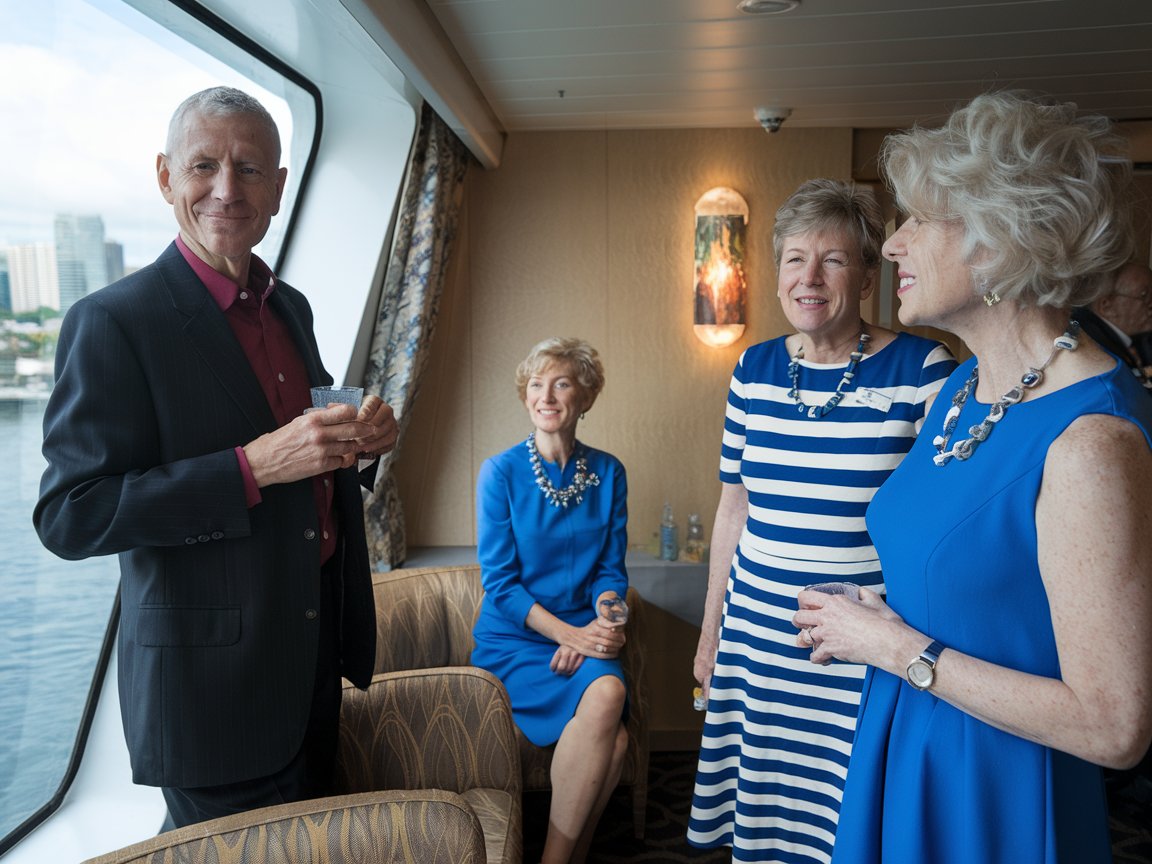
Key Takeaways
- Charter costs range from £1 million to £12 million, with daily rates around £140-150 per passenger plus additional fees.
- Work with professional shipbrokers to negotiate terms and select vessels that match your group size and event requirements.
- Start planning up to three years ahead, as cruise operators sell programmes well in advance and require substantial deposits.
- Choose between luxury cruise ships, expedition vessels, or riverboats based on your event needs and desired amenities.
- Full ship charters may be restricted if the vessel is already 25% booked, so early planning is crucial.
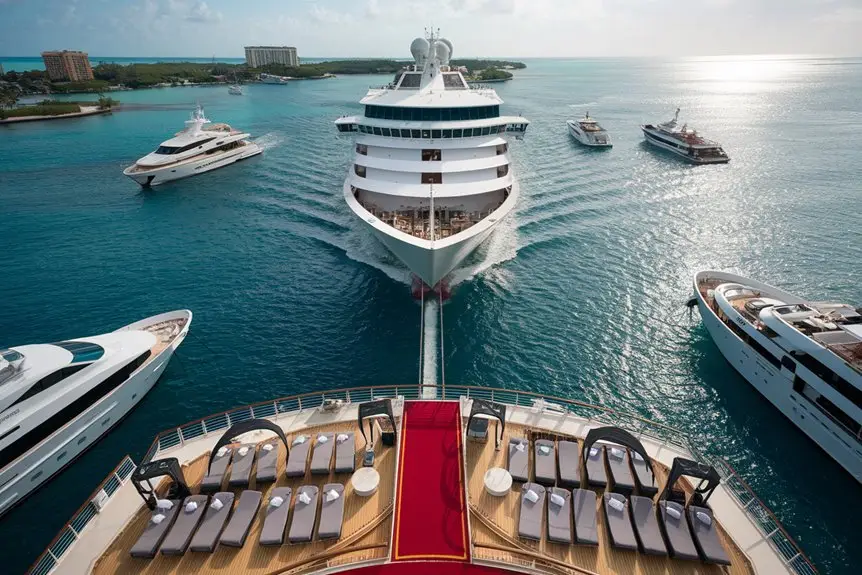
What Makes Ship Chartering Special
Three key elements make ship chartering a unique maritime arrangement.
When you charter a ship, you’ll gain unprecedented control over your voyage, including itinerary planning, event customisation, and passenger management. You’ll also benefit from remarkable flexibility in how you use the vessel, whether it’s for corporate functions, family reunions, or specialised events.
The second element is the professional support structure.
You’ll work with skilled shipbrokers who’ll negotiate terms and connect you with suitable vessels, whilst agents handle logistics and event planning.
Finally, there’s the clear division of responsibilities: as a charterer, you’re in charge of passenger safety and voyage planning, while the shipowner manages technical operations.
This arrangement guarantees both parties understand their roles in delivering a successful charter encounter.
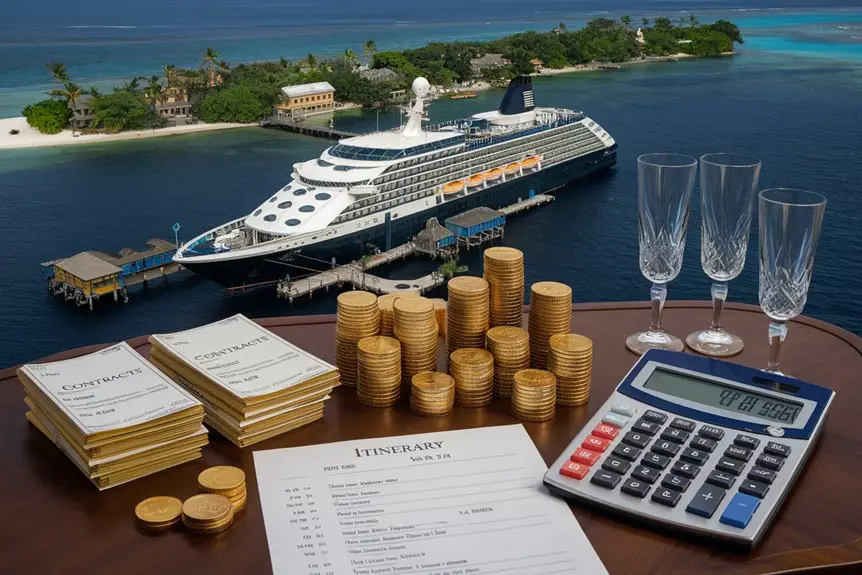
Costs and Financial Considerations
Understanding cruise ship charter costs requires careful consideration of several key financial factors.
You’ll find that chartering a cruise ship ranges from £1 million for a week on a mid-size vessel to £12 million for a mega ship. Basic rates typically run £140-150 per passenger per day, plus £25 in taxes and £15 in gratuities.
You’ll need to plan for a structured payment system, usually starting with a 10% deposit at signing. If you don’t opt for full upfront payment, you’ll require a letter of credit until 60 days after sailing.
Remember, rates are based on double occupancy, and you’re responsible for meeting onboard revenue targets.
Be aware that customisation requests, itinerary changes, and special events will add to your costs, and there’s no provision for cancellation in full-ship charters.
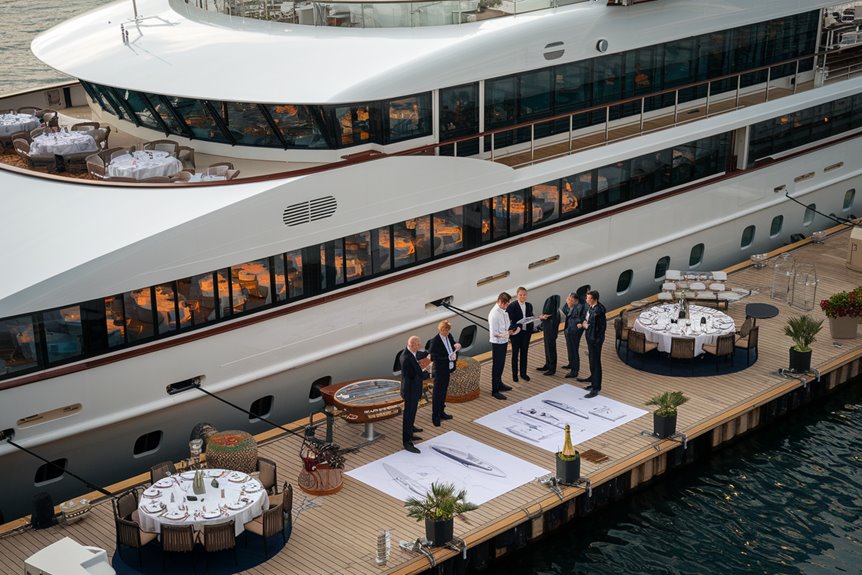
Planning Your Charter Experience
Now that you’ve grasped the financial aspects, successful charter planning hinges on a well-structured timeline.
You’ll need to start early, as cruise operators sell programmes up to three years in advance. Working with a shipbroker helps streamline negotiations and guarantees you secure the right vessel for your needs.
When planning your charter journey, focus on these critical elements:
- Establish clear contractual terms, including payment schedules and an irrevocable letter of credit upon signing.
- Coordinate with the cruise line regarding existing bookings, as they typically won’t consider full-ship charters if the sailing is over 25% booked.
- Define your customisation requirements for itinerary and onboard activities in the charter party agreement.
Your agent can handle logistics like guest invitations, reservations, and special arrangements, allowing you to focus on creating your unique cruise adventure.
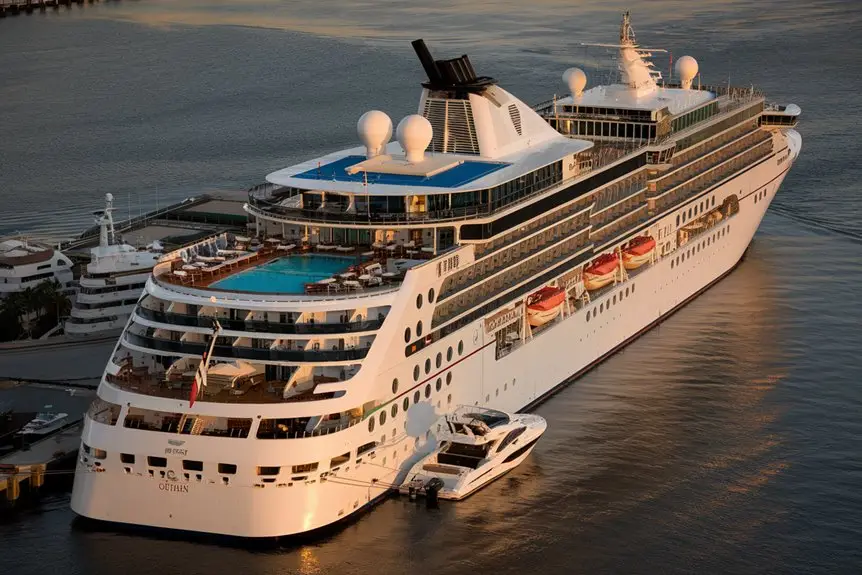
Selecting the Perfect Ship
Selecting the right vessel for your charter forms the cornerstone of a successful cruise journey.
You’ll need to evaluate several key factors, starting with the ship’s size and capacity to guarantee it matches your guest count. Consider the vessel type that best suits your event, whether it’s a luxury cruise ship, expedition vessel, or riverboat.
Focus on the ship’s amenities and facilities, making certain they align with your event requirements. You’ll want to verify the availability of necessary spaces like dining venues, entertainment areas, and meeting rooms.
Don’t overlook the technical aspects, including cabin layouts and crew capabilities. When making your selection, examine the cruise line’s reputation and safety record.
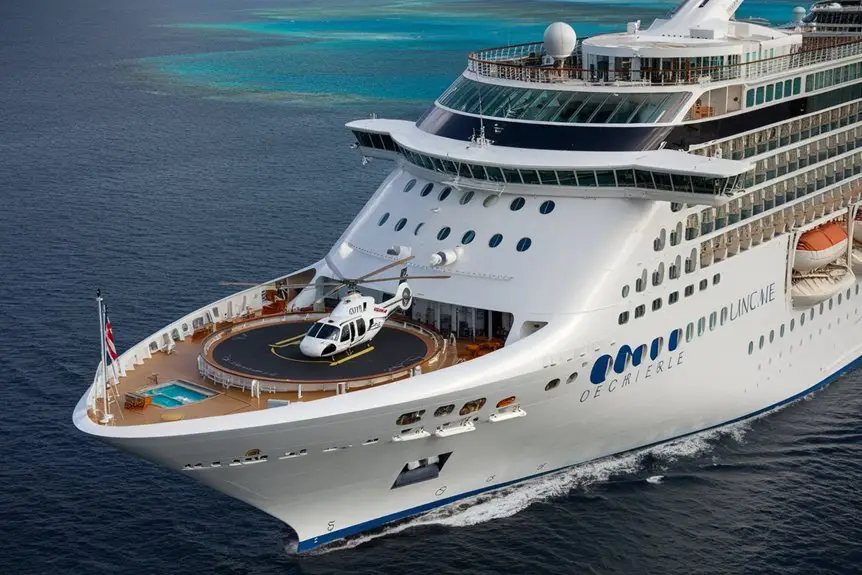
Cruise Lines Offering Charters
A diverse range of cruise lines provides chartering options to suit different group sizes and preferences. Major lines like Royal Caribbean and Carnival offer full-ship charters, with costs starting around £550,000 for a three-night cruise during off-peak seasons.
Luxury operators like Crystal and SeaDream Yacht Club cater to smaller groups seeking exclusive encounters.
Consider these key charter options:
- Large cruise ships from major lines require significant financial commitment and advance booking of at least one year.
- Luxury yachts and smaller vessels accommodate groups of 50-100 passengers with more flexible arrangements.
- Private charters through companies like Norwegian Ship Sales offer customisable itineraries and encounters.
Special interest charters are also available, with companies like Sixthman organising music festivals at sea and Atlantis specialising in LGBT cruises.
Expert brokers can help navigate the complex chartering process for any option you choose.
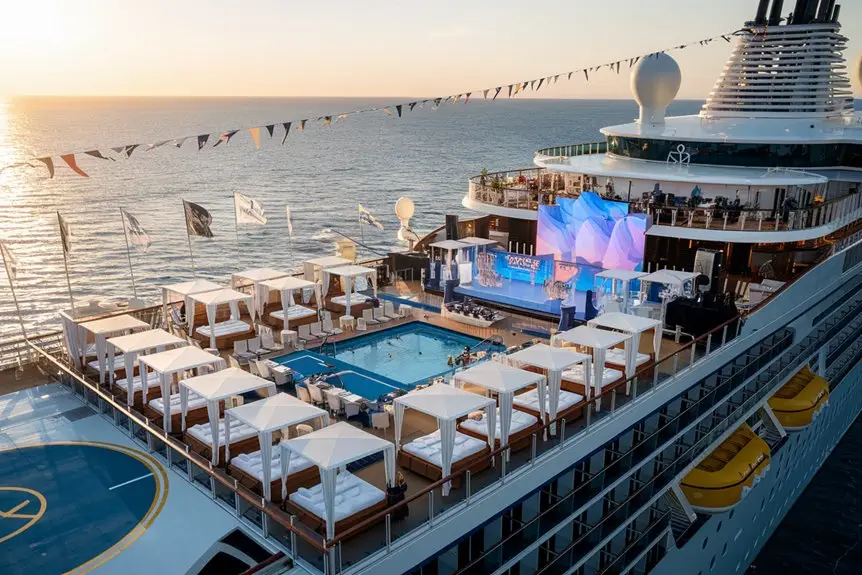
Customizing Your Charter Cruise
The journey to customise your perfect charter begins with several critical decisions that shape your entire cruise escapade.
You’ll need to clearly define your passenger demographics, including the number of guests, whether they’re families or singles, and any special requirements like dietary restrictions or visa needs.
Your interests and preferences will guide the ship selection process, where a shipbroker can help match you with the ideal vessel.
You’ll determine whether you want a voyage, time, or bareboat charter, each coming with different responsibilities and costs.
When planning your itinerary, you can choose specific destinations or themes, but remember to verify feasibility within the ship’s schedule.
Be prepared for significant financial commitments, as you’ll need to cover operational costs and possibly provide full payment or an irrevocable letter of credit upon signing.
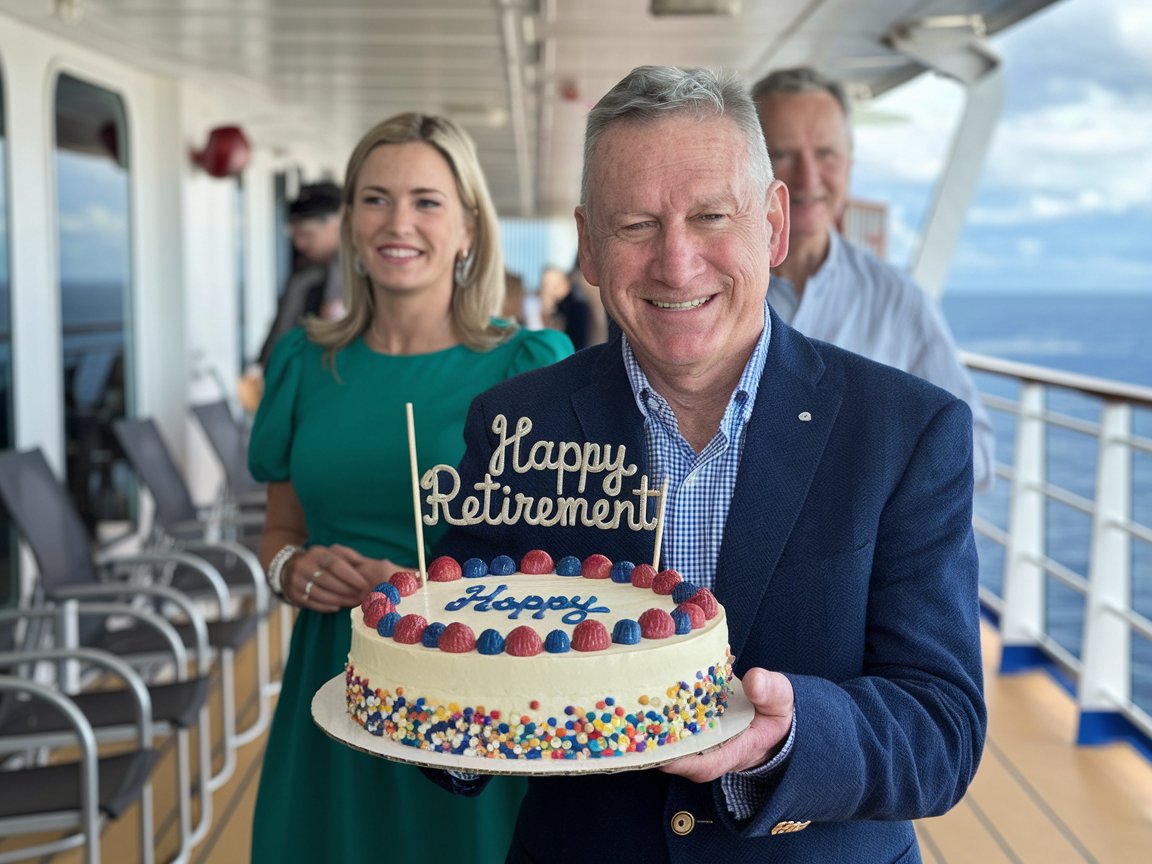
Frequently Asked Questions
Can Passengers Bring Their Pets on a Chartered Cruise Ship?
You cannot bring pets on chartered cruise ships unless they’re certified service animals. You’ll need to provide documentation 14 days before departure, and emotional support animals aren’t allowed under cruise line policies.
What Happens if Severe Weather Disrupts the Planned Charter Route?
If severe weather threatens your charter route, the captain and crew will prioritise safety by planning alternative routes. You’ll receive updates, and they’ll adjust activities and schedules whilst minimising disruption to your event.
Are Casino Operations Mandatory During a Full-Ship Charter?
No, casino operations aren’t mandatory during your full-ship charter. You can negotiate with the cruise line to customise onboard activities, including whether to operate the casino, as long as it meets contractual and regulatory requirements.
Can Charterers Change the Ship’s Crew Uniforms to Match Their Branding?
You typically cannot change crew uniforms to match your branding. Crew uniforms remain under the ship owner’s control, even in charter agreements. You will need specific permission and contract terms to make such changes.
Do Charter Cruises Require Different Insurance Coverage Than Regular Cruises?
Wondering about charter cruise coverage? Yes, you’ll need specialised insurance that’s different from regular cruise policies. You must secure charter-specific coverage for group liability, event cancellation, and extensive trip protection.
